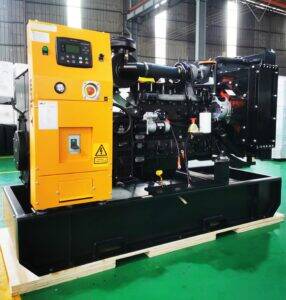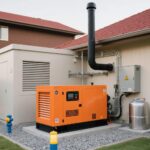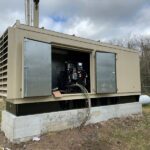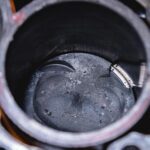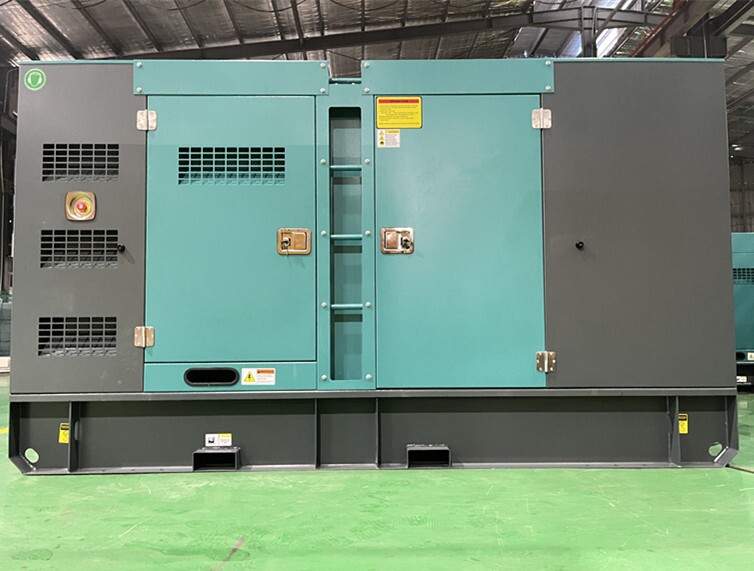
Introduction: The Importance of Commercial Generators
In an increasingly interconnected world, a reliable power source is essential for any business. Whether you’re running a small company or managing a large-scale manufacturing plant, the ability to maintain operations during a power outage is critical to ensuring productivity and avoiding costly downtime. This is where commercial generators come in.
Commercial generators are designed to provide backup power for businesses, farms, construction sites, and other operations that require a constant energy supply. Unlike residential generators, which are smaller and typically serve households, commercial generators are robust machines designed to handle higher loads and run for extended periods. Understanding how to select the right generator for your needs can make a significant difference in both the performance of your business and the longevity of your equipment.
In this guide, we will break down everything you need to know about commercial generators, from understanding the different types and their applications to choosing the right one based on your power requirements, fuel type, installation needs, and more.
1. Types of Generators: Residential vs. Commercial vs. Industrial
Before delving into how to choose a commercial generator, it's important to understand the differences between residential, commercial, and industrial generators. This comparison will help clarify which type is most suited to your needs.
Residential Generators
Residential generators are typically used in homes to provide temporary backup power during outages. They are portable, low-power units that are easy to install and use. Most residential generators run on gasoline or natural gas and are available in either single-phase or three-phase models. These generators are often used to power essentials like refrigerators, lights, and HVAC systems.
- Power Output: Usually less than 25 kW.
- Fuel Types: Gasoline or natural gas.
- Installation: Portable, easy to set up without professional installation.
- Applications: Ideal for households or small operations that require limited power backup.
Commercial Generators
Commercial generators are more powerful than residential units and are designed to meet the needs of small to medium-sized businesses, farms, or construction sites. These generators typically range from 25 kW to 150 kW and are built with more durable components to handle the higher loads of commercial applications.
- Power Output: Typically between 25 kW and 150 kW.
- Fuel Types: Diesel or natural gas.
- Installation: Can be either portable (mobile units) or stationary (fixed units).
- Applications: Small to medium-sized businesses, remote construction sites, farms, or any situation that requires more power than a residential generator can provide.
Industrial Generators
Industrial generators are the largest and most powerful type, designed to provide backup power for large-scale industrial operations. With power outputs ranging from 150 kW to 2 MW, industrial generators are used in high-demand environments like oil rigs, airports, hospitals, and manufacturing plants. These generators often require professional installation and are typically placed in secure, well-ventilated areas.
- Power Output: 150 kW to 2 MW or more.
- Fuel Types: Diesel, natural gas, or other industrial-grade fuels.
- Installation: Requires professional installation, usually on a concrete foundation.
- Applications: Large-scale industries, airports, hospitals, large factories, or other critical infrastructure.
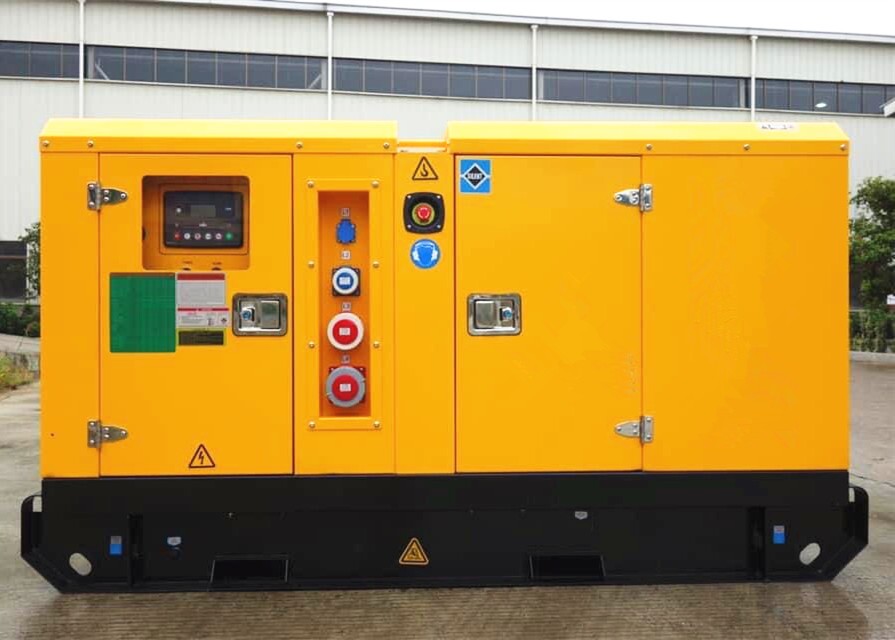
2. How to Calculate Your Power Requirements
One of the most critical steps in choosing the right commercial generator is calculating your power requirements. This ensures that you select a generator that can handle the load of your equipment and systems during a power outage without being overworked. Here’s how you can determine the appropriate power output for your needs:
Step 1: Identify the Equipment to Be Powered
Start by listing all the equipment and systems you need to keep running during a power outage. This could include lighting, HVAC systems, computers, production machinery, security systems, and more.
Step 2: Check the Power Ratings
For each piece of equipment, check the wattage (or power rating) listed by the manufacturer. These ratings typically specify the amount of electricity the equipment will consume when operating at full load. Don’t forget to consider the starting power requirements, especially for equipment like motors, pumps, and compressors, which often require more power to start than to run.
Step 3: Add 20-25% Extra Capacity
It’s a good idea to add 20-25% extra capacity to your total power needs. This ensures that your generator runs at about 80% of its rated capacity, providing reserve power for unexpected surges in demand or new equipment. For example, if your total power requirement is 100 kW, you should consider a generator that can handle 120-125 kW.
Step 4: Factor in Load Types
If you have sensitive equipment, such as computers or medical equipment, you may need to factor in the power quality, including voltage regulation and frequency stability. In these cases, you might want to opt for a generator with a more stable power output and better insulation.
3. Choosing the Right Fuel Type: Diesel vs. Natural Gas vs. Others
Once you’ve determined your power needs, the next step is to decide on the fuel type for your generator. The two most common fuel types for commercial generators are diesel and natural gas. Each has its advantages and disadvantages depending on your location, fuel availability, and budget.
Diesel Generators
Diesel generators are often preferred for their higher power output and fuel efficiency. They are ideal for locations where frequent power outages are expected or where backup power must be sustained over a long period.
-
Advantages:
- Higher fuel efficiency and better performance under heavy loads.
- More durable and reliable for long-duration operation.
- Widely available and suitable for remote areas where natural gas may not be accessible.
- Extended operational lifespan, especially in harsher conditions.
-
Disadvantages:
- Higher upfront cost compared to natural gas generators.
- Requires regular maintenance, including fuel filter changes and oil checks.
- Diesel is a non-renewable resource and has a larger environmental footprint compared to natural gas.
- Noise and emissions can be higher than natural gas generators, requiring soundproofing and emissions management.
Example Model: For instance, the Cummins Diesel Generator we offer at WALT POWER GENERATORS is designed for high-demand applications with exceptional fuel efficiency and a robust cooling system, making it ideal for regions with frequent power cuts or harsh environments.
Natural Gas Generators
Natural gas generators are commonly used in areas where natural gas is readily available through pipelines. They produce fewer emissions than diesel generators and tend to be quieter in operation.
-
Advantages:
- Cleaner fuel with fewer emissions, making them more environmentally friendly.
- Typically lower operational costs if connected to a natural gas grid.
- Quieter operation than diesel generators.
-
Disadvantages:
- Less fuel-efficient and may not provide as much sustained power as diesel.
- Reliant on a natural gas grid, which can be disrupted in the event of a natural disaster or major outage.
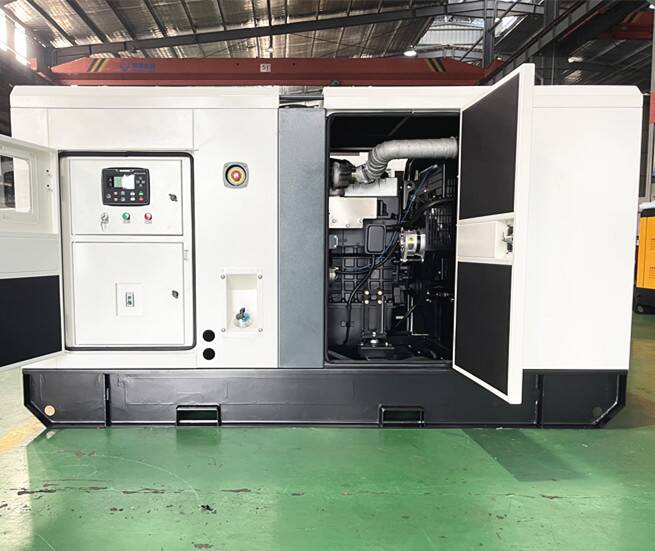
4. Installation, Maintenance, and Safety Considerations
Installation Requirements
Commercial generators often require professional installation due to their size and complexity. Proper installation ensures that the generator operates efficiently and safely. When planning installation, consider factors such as:
- Location: The generator should be placed in a well-ventilated area with easy access for maintenance. It should also be installed on a concrete pad to ensure stability.
- Safety: Ensure that the generator is installed in accordance with local safety regulations, including proper grounding and ventilation to prevent carbon monoxide buildup.
- Load Transfer: Installation should include an automatic or manual transfer switch that ensures a seamless transition from the grid to the generator during a power outage.
Maintenance and Service
Regular maintenance is essential to keep your generator running smoothly. Common maintenance tasks include:
- Changing oil and fuel filters.
- Inspecting the cooling system.
- Testing the battery and electrical systems.
- Performing load tests to ensure proper function.
For commercial generators, it's recommended to have a service contract with a professional technician who can perform routine inspections and repairs.
Safety Considerations
When operating a commercial generator, always follow safety protocols:
- Ventilation: Ensure that the generator is placed in a well-ventilated space to avoid the buildup of harmful gases like carbon monoxide.
- Fuel Storage: Never store fuel next to the generator, and ensure that fuel containers are stored in a safe, secure area.
- Emergency Shutdown: Always know how to manually shut down the generator in case of an emergency.
5. Buying vs. Renting a Commercial Generator: What’s Right for You?
When deciding whether to buy or rent a commercial generator, you need to weigh the pros and cons of each option.
Renting a Generator
Renting can be a cost-effective solution for short-term needs, such as temporary power during construction projects or for events. It saves you from the upfront cost of purchasing a generator and removes the responsibility of maintenance.
-
Advantages:
- No upfront capital expenditure.
- Flexibility to rent larger generators as needed.
- No ongoing maintenance or repair costs.
-
Disadvantages:
- Rental fees can add up over time, making it less cost-effective for long-term use.
- Limited control over generator specifications and availability.
Buying a Generator
Purchasing a generator provides you with full control over your power supply. It's the best option if you need reliable power on an ongoing basis.
-
Advantages:
- Full ownership and control over the generator.
- Can be written off as a business asset for tax purposes.
- Long-term cost savings compared to renting.
-
Disadvantages:
- Higher initial investment and installation costs.
- Ongoing maintenance responsibilities.
Conclusion: Selecting the Right Generator for Your Business
Choosing the right commercial generator involves understanding your power needs, selecting the appropriate fuel type, considering installation and maintenance requirements, and deciding whether to rent or buy. By following the guidelines in this comprehensive guide, you can ensure that your business is prepared for power outages and that you select a generator that fits your specific needs.
Whether you opt for a diesel-powered generator for maximum efficiency or a natural gas model for lower emissions, taking the time to choose the right generator will safeguard your business’s operations, protect valuable equipment, and provide peace of mind knowing that your business will keep running even during unexpected power failures.
Buying And Technical Contact
You can contact us in many ways:
You can go to our website (URL: https://waltpower.com/contact/) and drop us a message.
You can email us:
Our Contact is: +8618717996108 (WhatsApp)

